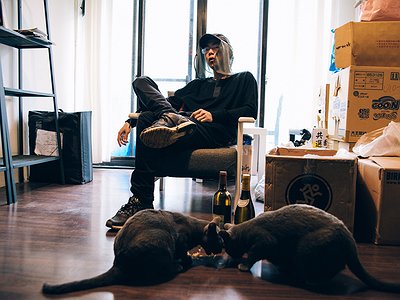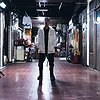Part 1
Name: Howie Lee
Nationality: Chinese
Occupation: Musician
Current Release: Birdy Island on Mais Um
Recommendations: The new Adam Curtis documentary Can’t get you out of my Head and all documentaries about him / Clark’s Kiri Variations
You can find Howie Lee’s music on his Bandcamp page howielee.bandcamp.com
When did you start writing/producing music - and what or who were your early passions and influences? What was it about music and/or sound that drew you to it?
I started when I was in middle school, about 13 or 14 years old. I wasn’t really exposed to music for quite a time after my fail of studying keyboard, as the teacher wasn’t good. Then all of a sudden, I discovered guitar music. My main influence at that time was Nirvana. When I first listened to those raw and distorted guitars I found home. I was shy at the time, so I think that kind of energy really spoke to me. I found the music randomly through a thing in China called “dakou”, it’s those hole-cut tapes and CDs imported from America as plastic rubbish. Those are treasures to me, as this kind of music doesn’t exist on the radio or TV or anywhere else. This rareness makes music a precious thing to me ever since.
For most artists, originality is preceded by a phase of learning and, often, emulating others. What was this like for you: How would you describe your own development as an artist and the transition towards your own voice?
In a way, I don’t believe ‘I’ ever existed. I think all art comes from copying; in various forms, of course. Some are more sophisticated than others. I think deep down, the inner voice, or instinct, or as C.G.Jung called it our ‘collective unconsciousness’, all comes from the same root of our ancestors. More and more I find myself not embracing individualism. I think art is to share rather than to own.
How do you feel your sense of identity influences your creativity?
I think I was trying too hard to embrace my identity at some point in my life. Then I realized there is nothing to embrace. The so-called identity is just an illusion. Also as a confession, I think I was using identity as a tool to feed my inner appetite. More and more I felt it drag me to a narrow place, when actually, there is a way bigger place to embrace. I guess it can also be constructed through developing the art practice. The more you shape it the more it becomes blurry and unnecessary.
What were your main creative challenges in the beginning and how have they changed over time?
Lack of form can be easily copied. When I was, I was playing in a punk band and the music we were writing was not necessarily what I wanted to write. But that’s the only way we could get an audience. I was more interested in electronic music. But I had no idea how it was being performed, as there’s not many people who have experience with this in China. I was very lonely so I had to choose another form, where there is an established model.
I went to the UK to study sound art and I learned a lot from there. I started to dive in and I found there is more and more to be discovered. Now my main challenge is that there are so many things to play with, I must limit myself to explore certain territories a time.
As creative goals and technical abilities change, so does the need for different tools of expression, be it instruments, software tools or recording equipment. Can you describe this path for you, starting from your first studio/first instrument? What motivated some of the choices you made in terms of instruments/tools/equipment over the years?
Keyboard was my first instrument. I studied when I was six years old, but I didn’t like the teacher so I abandoned it. I can play plucked and wind instruments too. I’m fascinated by the different mentalities of instrument design. I think those are the backbones of ethical music. Western music has a very strong root coming from the piano. It is still the most precious instrument ever made. I studied recording engineering at university, so an engineer’s mentality is vital to me and I’m always fascinated by the idea of instrument design. But I also think a lot of modern synths suffer from too much engineering. To me, a good instrument is just like an empty playground, it is a container of the player’s gestures, it must embrace the “emptiness”, it must be fluent.
Have there been technologies or instruments which have profoundly changed or even questioned the way you make music?
For past few years, the iPad has shaped my music a lot. I like the intuitive interface of a touch screen. It generates a good vibe. It can be as sensitive as a real instrument. I also love to use gesture controls. I recently did a demo video for Native Instruments where I use my leap motion to control their synth. It’s like doing Tai-Chi and making sound at the same time.
Musicians can do very intuitive things now. I really don’t like the term ‘producer’ where the ‘producer’ can be staring at the screen all the time, it’s a very consumerist term. They are more like ‘designers’.
Collaborations can take on many forms. What role do they play in your approach and what are your preferred ways of engaging with other creatives through, for example, file sharing, jamming or just talking about ideas?
Collaborations can be really fun. I miss when people could just jam and jam. Where music is pure energy and there’s no need to be recorded and to be produced in order to make it a product. Improvisation still plays a big part in my music. I jam with all kinds of people, including myself. There is always a very subtle atmosphere that can be only created by a direct and instinctive collision between musicians. And a good musician is able to capture those subtle changes and turn it into a piece of work.






